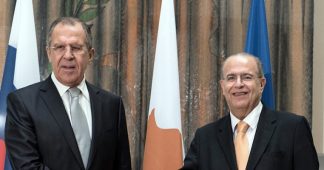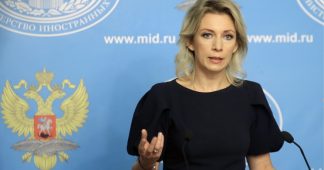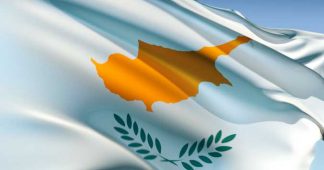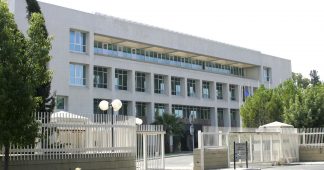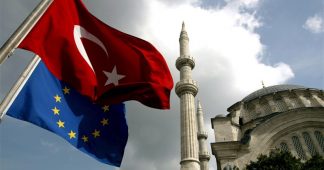May 13, 2019
In three essays for RIAC, since summer 2017, and in Russia-Cyprus Relations: A Pragmatic Idealist Perspective, we tried to describe, explain and defend why and how these relations are “special.” The main thesis has been that this nature is premised not only on mutual interests but also on shared principles, common values, and “mutual sympathy,” according to Sergey Lavrov himself [2]. Such a combination, exceptional in international relations, is the reason for arguing that Russia and Cyprus are related both “pragmatically” and “idealistically,” where the latter is understood in terms of international legal and ethical norms, as well as cultural, religious, historical and political affinities and bonds.
Recent geopolitical developments, however, have not only revealed the enhanced geostrategic and geo-economic significance of the Republic of Cyprus; they also generated some disconcerting perceptions that appeared to burden the bilateral relationship with a certain indeterminacy. This initially derived from the open expression of complaints, the subterranean suspicion of weakening commitments, and the fear that emerging “strategic shifts” may alter the essence of their valuable connection. Moreover, then came the Trilateral Meeting of Greek, Israeli and Cypriot leaders in Jerusalem, on March 20, 2019.
This meeting may have surprised and even confused the committed supporters of Russia-Cyprus relations. For this, their sixth meeting was distinguished from its antecedents by the presence of US Secretary of State, Mike Pompeo, and the probable geopolitical implications for the Eastern Mediterranean. These implications have led some to doubt the “special” nature of current Russia-Cyprus relations.
The present essay will examine the validity of the various perceptions, complaints, and suspicions in order to conclude whether they can threaten the unique character of Russia’s relations with Cyprus or they merely amount to ephemeral misunderstanding due to hyperbole.
The Disconcerting Statement of December 2018
The main recent cause of serious anxiety in Cyprus was a bold and unusually unfriendly “warning” directed at Nicosia by the Russian Foreign Ministry. Spokeswoman, Maria Zakharova, a traditional defender of Cypriot interests and needs, declared on 5 December: “The further militarization of the island and its involvement in the implementation of the US and NATO plans will inevitably lead to dangerous and destabilizing consequences for Cyprus itself. Moscow cannot but take into consideration the anti-Russian background of these schemes. We will have to take response measures in case of their implementation.”
The evidence on which this “warning” was premised was the information received from different sources about the US’ “active actions” (sic) to sustain the possibility of “building up” its military presence in Cyprus. Maria Zakharova viewed this increase as aiming to counter “the growing Russian influence in the region in light of the successful implementation of the operation of the Russian Aerospace Force in Syria.”
Given the long-established harmonious context of Moscow-Nicosia relations, the austere warning seemed unjustified and inexplicable from the Nicosian perspective. Hence Cypriot Foreign Minister, Nikos Christodoulides, immediately telephoned Sergey Lavrov. Subsequently, the news from Moscow was that the two Foreign Ministers, after exchanging views “on possible ways of further enhancing” the bilateral relations, discussed recent developments in the Eastern Mediterranean and “agreed to meet in the coming months.” Simultaneously, Cypriot government spokesman, Prodromos Prodromou, denied that Cyprus seeks or has ever sought to militarize itself: “We would like to clarify that it has never been our aim nor do we now seek the militarization of Cyprus.”
Prodromou explained that the Republic of Cyprus, “making the most of its geographic position, provides facilities for operations of a humanitarian nature and only when certain countries submit a relevant request or if there is a relevant agreement or memorandum of understanding in place.”
Was, then, the whole incident of a tempest in a teapot? Not exactly. First, because Cyprus provides more than just humanitarian assistance to various countries, and second, as Kathimerini (of Cyprus) recalled, “Earlier this week President Anastasiades expressed hope that the US will join the trilateral energy cooperation between Cyprus, Israel, and Greece.” Thus, it is tempting to suspect that such energy cooperation may entail military collaboration and, therefore, the addition of a NATO or Washington dimension might involve a “military build-up.” However, knowing Cypriot domestic politics, as Moscow paradigmatically does, would remind one that NATO is an anathema to AKEL, Cyprus’ “communist” party and the official opposition; and given the Cypriot tradition that no major foreign policy decision is legitimized without AKEL’s consent, Washington could not be assumed to be equating “energy cooperation” with “militarization”.
Intriguingly, and, according to one more paradox of Cypriot politics and geopolitics, NATO and the US are, in an obvious sense, already in Cyprus. For not only have the two (colonial) British Bases remained here since the creation of the Republic in August 1960, but the US is presumed to have used them with British (and tacit Cypriot?) consent. And yet, if the Cypriot president’s “hope” extended only to the US protection of Exxon Mobil’s explorations in the Cypriot Exclusive Economic Zone (EEZ), then, given Turkey’s escalating threats and daily provocations, the “hope” was rational and fully justified. Also, it would be justified a fortiori if Washington is seen as also wishing to condemn Erdogan’s gunboat diplomacy.
Ambassador Stanislav Osadchiy, invited to comment on Maria Zakharova’s statements, initially replied that he “would not be a good diplomat” were he to discuss “a statement coming from someone higher in the rank”; he nonetheless proceeded to state that “what Zakharova said mainly concerns the US, not Cyprus.” Simultaneously, he declared that the bilateral relations are “at a very good level and continue to develop further”; and when asked if the “Zakharova crisis” is defused, he replied, “yes, the crisis comes and goes” (sic).
The episode attracted all major international media. Even Chinese Xinhuanet carried a balanced report entitled, “Crisis between Russia and Cyprus over, say, Russian, Cypriot officials.” The report, containing the relevant statements by Prodromou and Ambassador Osadchiy, began as follows: “A crisis that soured traditionally good relations between Russia and Cyprus is over, Russian and Cypriot officials said on Monday”.
It thus transpired that the particular “crisis”, after causing deep surprise and wide international interest, was officially affirmed as over. However, what has evaded investigation is whether behind Maria Zakharova’s reasoning may be hiding accumulated misperceptions or even Unwelcome truths about the bilateral relations being negatively affected. This question should be addressed not only because these relations have been special and mutually beneficial but especially because Russia and Cyprus will clearly need each other in the Eastern Mediterranean labyrinthine future.
Russian-Cypriot Mutual Benefits
With “pragmatic idealism” progressively established, one could identify numerous substantial benefits for both countries.
For Cyprus, the semi-occupied Republic since the 1974 Turkish invasion, the primary benefit was a sustained sense of political security and diplomatic solidarity that Moscow has provided at the Security Council and bilaterally, through declarations, decisions, and actions that rendered Russia the gigantic counterweight to the machinations of London, Washington, and Ankara. Second, Cyprus has been grateful because Russia’s verbal and non-verbal actions defend the legality of the Republic, [1] contradicting thereby the cynical Anglo-American Realpolitik and Ankara’s crude belligerence. Therefore, Moscow has been the primary reminder of Cyprus’ traumatized sovereignty and territorial integrity, whereas hypocritical Western “creative initiatives” about the Cyprus problem, have aimed repeatedly at exculpating Turkey. Third, the most “tangible” pragmatic benefits include Russia’s readiness to support the Republic’s defense, besides strengthening Cyprus’ economic platform through serious banking and real estate investments. Fourth, Russian tourism has been the most distinguished source of both solidarity and valuable income. Fifth, Cypriot society has been enormously enriched by the active presence of over 50.000 Russians who love Cyprus and consider it their home. Moreover, sixth, Cypriots count on sincere Russian friendship and mutual sympathy to strengthen further inter-personal and also inter-governmental and inter-state political bonding.
Moscow, in turn, can treasure the political association with a grateful and faithful friend and “natural ally” (Dr. Nadezhda Arbatova’s term), enjoying Cyprus’ pro-Russia voice in international fora, and primarily in Brussels, where one can hear the devious assertion that “Cyprus is Russia’s Trojan Horse.” Second, Russia has enjoyed Cyprus’ status as a top channel for massive investments. Third, Russia expanded via Cyprus its economic presence within the EU, while Russian investors acquired a strong foothold in Cypriot real estate, banking, and other services. Fourth, Cyprus became a safe, attractive and exciting tourist destination, for both general and “spiritual” Russian tourism. The relevant figures are quite impressive, especially when we compare the 148.740 Russian arrivals of 2009 to the 334.083 in 2011 and then consider that 636.766 Russians visited Cyprus in 2014, followed by 781.634 in 2016 and 824.494 in 2018. Fifth, Russia’s “pragmatic idealist” treatment of Cyprus, by respecting legal and ethical principles and values, helps strengthen Russia’s much-needed international prestige and “soft power.” Sixth, the tens of thousands of Russian residents describe their life here with glowing colors. As attested by the Editor of Vestnik Kipr, Ms. Natalia Kardash: “Cypriots like Russians. Russian people feel very comfortable here. There are many countries with good weather and similar business conditions. However, Cyprus –I know it for sure- is the best country in Europe if you take into consideration how people treat Russians here. Many people say that in Cyprus they feel that they live a full life, they learn to enjoy every day” [2 ].
Recent Regional Geopolitical Developments
The Geopolitical Gordian Knot created in Cyprus’ region has been variously affecting Russia-Cyprus relations. Primarily as follows: first, Washington is apparently pursuing a novel embrace with Cyprus; second, Nicosia, confronted with Turkey’s unending belligerence, does not resist the embrace, thereby upsetting the traditionally professed “symmetry” in its relations with Russia; third, Moscow’s manifold rapprochement with Recep Tayyip Erdogan’s Turkey is ever-strengthening and deepening; fourth, Cyprus has re-emerged as an apple of discord in the Eastern Mediterranean antagonism, thanks mainly to the substantial hydrocarbon deposits in its EEZ; and fifth, President Erdogan’s expansionist policies in Syria and Iraq are accompanied by unending threats and provocations against Israel, Egypt, Cyprus, and Greece.
1. Washington has long been calling US-Cyprus relations “strategic.” However, this adjective had been hyperbolic and euphemistic, until the emergence of two sets of developments. The first followed the dramatic crisis caused by the November 2015 shooting down of the Russian Sukhoi Su-24M attack aircraft by the Turkish F-16 fighter jet. Seen from Nicosia, a mind-boggling landscape ensued, caused by Vladimir Putin’s widely assumed design to affect, if not break, Turkey’s ties to Washington and NATO; by Erdogan’s exploitation of the two superpowers’ eagerness to “woo” his country; and by the unavoidable ambiguities in the Moscow-Ankara-Washington triangular connection. The second development arose from Erdogan’s “megalomaniacal” regional ambitions, which have included (a) his preparedness to threaten even the international energy colossi exploring the Cypriot EEZ and (b) his “Machiavellian games” regarding the acquisition of the Russian S-400 system in tandem with the Patriot and the F-35 aircraft. Consequently, Washington’s patience is perceived as exhausted since Ankara’s reliability as a NATO ally has been thoroughly undermined. Thus, by 2018, given Washington’s fatigue with Erdogan’s cunning; its effective endorsement of Nicosia’s tripartite quasi-alliances with Israel, Greece and Egypt; and in view of ExxonMobil’s active regional involvement, a perceptible “warming” of US-Cyprus relations was pursued by various means, including Nikos Christodoulides’ November 2018 meeting in Washington with the US Secretary of State Mike Pompeo.
2. Nicosia has been describing its relations with both superpowers as strong and balanced. And although its “western” credentials are established through -mostly unfortunate- historical antecedents and the post-2004 full EU membership, Nicosia eagerly cultivated the strong and mutually fruitful association with Moscow. However, Nicosia’s insistence on asserting “symmetry” towards both “West” and “East” has obviously failed to convince Moscow, as demonstrated by Maria Zakharova’s December 2018 “warning”.
3. The current Moscow-Ankara rapprochement cannot be doubted (doubts may exist only about its duration.) In the past, when their relations were confined to trade, tourism and mutual investments, I had argued that such “material embrace” could co-habit with the far broader and deeper Russia-Cyprus bonds [3]. Today, however, the “embrace” has expanded to incorporate elaborate geostrategic and geo-economic commitments that are causing profound Cypriot insecurity and displeasure.
4. The ongoing exploration for hydrocarbon deposits has increased the geopolitical attractiveness of Cyprus just as its status as “an unsinkable aircraft carrier” retains its geostrategic value. However, there are also “geo-economic” cards in the Cypriot geopolitical game. Uppsala University’s Dr. Igor Torbakov, after noting the long and “multifaceted Russian influence” in Cyprus, and “the importance of the Russian factor for Cyprus’ economic wellbeing,” wrote: “Yet precisely this factor made Cyprus extremely vulnerable vis-à-vis the demands of US authorities, now pressuring Cypriot banks to clean up their act and apply stricter measures against “Russian money laundering.” So Cyprus finds itself stuck between a rock and a hard place: its bankers hate to cut their best clients, yet they can ill afford to antagonize the US as they heavily depend on the US corresponding banks in all their dollar transactions. Bank of Cyprus CEO John Hourican put it quite nicely last October in an interview with the Wall Street Journal. ‘The US and Russia are in a kind of economic war, and you fight those wars where the two sides meet,’ he said. ‘They meet in Cyprus’’ [4].
5. President Erdogan’s unending belligerence primarily vis-à-vis Cyprus and Greece were exposed in the RIAC paper entitled: “How Rational is President Erdogan’s Policy against Cyprus and Greece: A Case Study.” It presented his passionate anti-Hellenic fixations, expressed among other things by explicit military threats, psychological blackmail, hybrid warfare, and gunboat diplomacy, all of which inevitably play a crucial negative role in Russia-Cyprus relations [5].
Current Russian and Cypriot Suspicions and Complaints
The subsequent regional geopolitical changes have generated “a certain indeterminacy.” Thus, before attempting to predict the future trajectory of Russia-Cyprus bonds cautiously, we must address the perceived mutual suspicions or actual complaints of the two capitals.
Moscow finds disturbing: firstly, Nicosia’s recent propensity for a stronger engagement with Washington; secondly, its inability to resist Western demands regarding alleged Russian money laundering. For Cyprus, two major issues are disheartening: Moscow’s commitment to build the Akkuyu nuclear power plant just across Cyprus’ northern shores; and Moscow’s hesitation in condemning Ankara’s multiple aggressions explicitly in Cyprus’ EEZ.
Moscow’s disappointment regarding appears rational and understandable. In fact, a similar criticism is frequently voiced by Cypriot Centrist elites, traditionally complaining that Anastasiades tends to turn to Moscow primarily when in need. Nicosia, however, might reply that no “strategic shift” has occurred but rather a “defensive flirtation,” justified by Moscow’s multiple bonding with Erdogan’s Turkey and its attendant “neutrality” towards Turkey’s provocations, and the necessity to establish security for the energy giants operating in its EEZ. Moreover, Nicosia has long and openly rejected NATO membership, mainly because of its unpopularity in Cypriot civil society and AKEL’s strong opposition. Therefore, Ms. Zakharova’s reaction is proven, on reflection, unjustified.
The second perceived Russian complaint also seems unfair, considering the ruthless measures that the West can apply against small Cyprus, and recalling the travails it suffered by the Eurogroup’s 2013 toxic bail-in which, incidentally, hurt primarily Russian depositors.
Since the Akkuyu area, like the entire Turkish territory, is notoriously seismogenic, Cypriot and Turkish ecologists consider building such a power plant extremely risky and therefore irrational. Moreover, Nicosia analysts and ordinary citizens fear that the Akkuyu affair reveals a Muscovite indifference to widespread protestations. As for Moscow’s current coyness vis-à-vis Erdogan’s blatant illegality in Cyprus’ EEZ, Greek Cypriots juxtapose it to Russia’s powerful pro-Cyprus declarations in 2011 and 2014 and find disappointing Moscow’s present stance.
Simultaneous Resistance to Changing the Established Bilateral Status
And yet, simultaneous clear signals manifest that neither capital wishes to endanger their “special” relationship. Thus, FM Christodoulides’ April 2018 Moscow meeting with Sergei Lavrov was marked by positive promises and implications. Ambassador Osadchiy regularly repeats Moscow’s sustained support. In fact, besides skillfully defusing the December 2018 “crisis,” he also minimized the ultimate effects of European and the US demands on the Cypriot banking system.
Addressing the Russia-Cyprus Business and Investment Forum in Limassol, in mid-November 2018, he referred to problems causing “the closing of Russian bank accounts and the withdrawal of Russian companies from the island.” However, on 10 December, when the Ambassador stated that Russia-Cyprus relations are “at a very good level and continue to develop further,” commenting on concerns about the shutdown of shell-companies, he said: “Russians are patient, we wait, and I think everything will be OK (…) We have been through many crises, and we will overcome this as well”. Incidentally, in June 2014, Ambassador Osadchiy assumed a similar spirit, recognizing that only a few Russian businessmen and investors had left Cyprus despite the “bail-in crisis,” by employing the Russian proverb, “Better an old friend than two new ones!”[6].
Further evidence of the will to safeguard the valuable relationship was included in FM Christodoulides’ lecture on Cypriot foreign policy, in January 2019, when he stated that “Cyprus’ relations with Russia and China are excellent [7].” In this connection, the Russian UN Ambassador’s stance during the recent Security Council discussion about the UNFICYP’s future is clearly contrasted Moscow’s support for Cyprus’ security needs to renewed Anglo-American machinations [8].
February 2019: Nikos Christodoulides Visits Sergey Lavrov
Respecting their December 2018 agreement, Nikos Christodoulides visited officially Sergey Lavrov on 22 February 2019. After the talks, the Cypriot FM stated that “the bilateral relations are at a very satisfactory level”; that they agreed “to work together, in concrete actions, for the further development of these relations in a number of subjects of common interest.” In addition, the Cypriot minister expressed: “the appreciation of the Republic of Cyprus for the diachronic stance of the Russian Federation, especially in the framework of the UN Security Council, [its] clear position on the abolition of the anachronistic system of guarantees of 1960, as well as the need for the unobstructed continuation of the UNFICYP’s presence, for as long as the present unacceptable state of affairs continues”.
Sergei Lavrov’s statements at the beginning of the press conference sounded even more positive and far “warmer.” First, he employed his favorite and unmistakably “pragmatic idealist” formulation: “Cyprus is Russia’s important and long-time partner. Our cooperation hinges on long-standing bonds of friendship and mutual sympathy, the spiritual and cultural affinity of our nations and serves to enhance security and stability in the East Mediterranean region and on the entire European continent.” He added: “We are satisfied to note positive trends in all areas of bilateral cooperation.” Moreover, what should cause Cypriot enthusiasm is Moscow’s sharing explicitly Nicosia’s recent proposals against “Turkey’s guarantees,” a fact contradicting Ankara’s hegemonic narrow-mindedness: “The current system of the island’s external security guarantees no longer meets modern realities and the Republic’s current international status. We firmly believe that the UN Security Council’s guarantees should become the most effective method for maintaining the security, sovereignty and territorial integrity of a united Cyprus.”
The February 2019 Moscow meeting justifies the perception that Sergei Lavrov’s clear intention was to transcend all misunderstandings. His Cypriot counterpart, presumably anticipating the Jerusalem meeting of 20 March, allowed Nicosia’s “pragmatism” to overshadow the “idealist” dimensions [9]. Incidentally, the same had occurred on 24 January. Talking to high school students, Nikos Christodoulides, in a “Realpolitik” mood, adopted the cliché that in foreign policy “there are neither permanent friends nor permanent defenders; there are only interests.”
***
Given this analysis, neither a “pessimistic” nor an unqualified “optimistic” perception of the current bilateral relationship is justified. As the review of the Eastern Mediterranean’s “Geopolitical Gordian Knot” has revealed, Russia and Cyprus are inevitably affected by a Heraclitean (geopolitical) flux. While sharing a host of common interests, they are also separated by some inevitable differences. The common interests were suggested by the vast list of mutual benefits accumulated since the 1950s. Today, while Moscow would rather see the absence of Washington’s renewed regional involvement and only limited exploitation of hydrocarbons competing with its own, Cyprus finds itself blissfully in the company of friendly states that share both economic interests and security concerns. The last spring from the region’s most controversial state, namely, Turkey. Since Moscow is currently pursuing an ambitious rapprochement with Erdogan, it follows that Nicosia is justified in welcoming a “pragmatic” geopolitical arrangement currently, without intending disrespect for Russian interests.
Fortunately, the “idealist” dimension remains alive and well on Moscow’s part, valuing an established background capable of sustaining the long, principled and mutually beneficial, “pragmatic idealist” synthesis in Cyprus-Russia relations.
Therefore, the “little” piece of advice to Nicosia would be this: in its relations with Russia, it is rationally imperative to eschew fastening on pure Realpolitik aphorisms and similar stances. Nicosia should always remember that it is indebted to Moscow, as mentioned above has demonstrated; and it should not water down the pragmatic-idealist mentality of previous decades, for reasons of rationality, consistency, and decency.
1. Turkey, alone in the world, refuses to recognize the Republic of Cyprus.
2. Natalia Kardash, “Russian Community in Cyprus: Advantages and Challenges”, paper presented at the University of Nicosia, 2 November 2010.
3. See Russia-Cyprus Relations, Chapter 8, “Russo-Cypriot Prospects”, pp. 126 ff.
42. Igor Torbakov, Correspondence with the author, 18 February 2019.
5. Erdogan’s sustained threats and hostile actions (see my RIAC papers), were extended by Defence Minister Hulusi Akar’s incomprehensible statement, in late March 2019, that Turkey “controls” inter alia the Aegean, the Eastern Mediterranean and Cyprus itself! For a useful key to understanding Ankara’s ongoing propagandistic repertoire, see Costas Melakopides, “Brief Remarks on President Erdogan’s and his Allies’ Methodical Use of Logical Fallacies”, RUDN Journal of Political Science, Vol. 20, No3, 2018, pp. 376-385, www.journals.rudn.ru/political-science.
6. Ambassador Osadchiy’s interview with MEGA TV, 6 June 2014, and reported by Phileleftheros on 7 June 2014.
7. Lecture invited by Think Tank ERPIC, Nicosia Hilton, 23 January 2019, addressing foreign diplomats, and Cypriot politicians and academics.
8. United Nations, Security Council 8453rd Meeting, 30 January 2019.
9. Minister Christodoulides’ skillfully chosen language in Moscow could not hide the fact that, instead of the traditional “gratitude” towards Moscow, he chose “appreciation”; and instead of “excellent” (relations), he preferred “very satisfactory”.
* Costas Melakopides isAssociate Professor of International Relations (ret.), University of Cyprus
